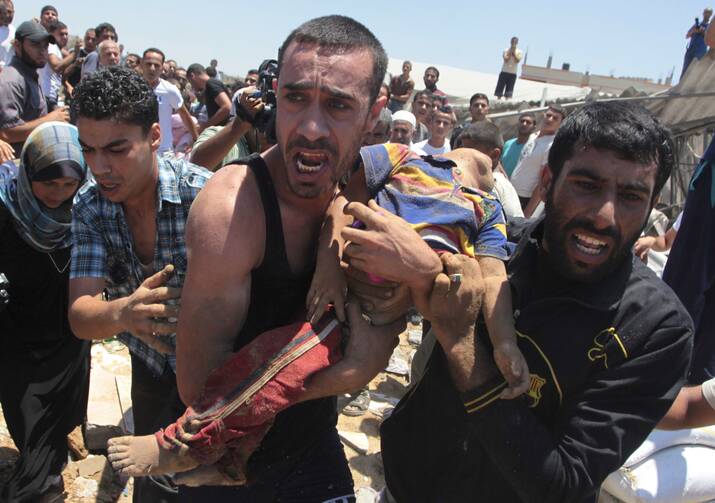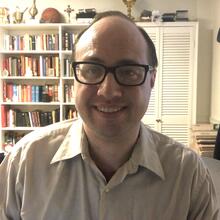The Catholic bishops of Israel and Palestine made a renewed plea for peace today, issuing a call for "radical change" as Israeli military retaliation against Palestinian rocket strikes intensified.
The "Call for a Courageous Change” was published in multiple languages by the Justice and Peace Commission of the Assembly of Catholic Ordinaries of the Holy Land, and endorsed by the Coordinating Catholic Aid Organizations, in response to the recent escalation of violence in Gaza, the West Bank, East Jerusalem and other parts of Israel.
"We need radical change," the statement declared. "Israelis and Palestinians together need to shake off the negative attitudes of mutual mistrust and hatred."
The statement included Biblical quotations and a prayer "that those who have fallen recently will be the last to die violent deaths in this escalation of hatred and vengeance."
Earlier this month, Palestinians kidnapped three Israeli teenagers—Jewish seminary students—on the West Bank and shot to them death with at least 10 bullets each. In retaliation, several Israelis kidnapped a Palestinian teenager in east Jerusalem last week and burned him alive. Israeli police announced Sunday that they had detained and were interrogating several Jewish suspects in the Muslim youth’s killing.
Although Catholics are a dwindling minority in the Holy Land, they have often been caught in the middle of Muslim-Jewish violence and peace negotiations. The Assembly of Catholic Ordinaries of the Holy Land consists of all Catholic bishops of various rites–Melchite, Maronite, Chaldean, Armenian, as well as the Latins and their representatives along with the Franciscan guardians–as headed ex officio by the Latin Patriarch of Jerusalem.
The assembly’s statement today criticized international media coverage for contributing to the cycle of violence by focusing selectively on the slain teenagers, overlooking many anonymous victims.
But it also condemned the “irresponsible language of collective punishment and revenge” that erupts from the tongues of politicians and people on the streets of Palestine and Israel, inciting further violence.
“Many in positions of power and political leadership remain entrenched, not only unwilling to enter into any real and meaningful process of dialogue but also pouring oil on the fire with words and acts that nurture the conflict,” the Catholic bishops said in the document.
The statement quoted Pope Francis, who told Israeli and Palestinian leaders at the invocation of peace hosted in the Vatican on June 8 that peacemaking calls for the courage “to say yes to dialogue and no to violence.”
“The present situation in Gaza is an illustration of the never-ending cycle of violence in the absence of a vision for an alternative future,” the bishops said.
They added that radical change will require both Israelis and Palestinians to shake off attitudes of “mutual mistrust and hatred,” teaching young people a new way of seeing the situation. They said this change will require the replacement of those Palestinian and Israeli political leaders who “feed on the cycle of violence.”
“We must find and support leaders who are determined to work for justice and peace, recognizing that God has planted here three religions: Judaism, Christianity and Islam, and two peoples: Palestinian and Israeli,” the bishops said.
As religious leaders in Israel, the Catholic bishops said they had a role “to speak a prophetic language that reveals the alternatives” to current realities.
Sean Salai, S.J., is a summer editorial intern at America.







